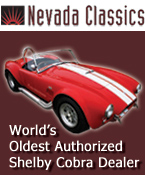
06-08-2007, 07:14 PM
|
|
Banned

|
|
|
Join Date: Jan 2003
Cobra Make, Engine:
Posts: 1,085
|
|

 Not Ranked
Not Ranked
 Beware of dual disc clutches
Beware of dual disc clutches
I almost installed a dual disc clutch on my car and changed to single disc last minute due to required modifications I was not comfortable with, like trimming the bearing retainer and shaving part of the bolt heads that hold the bearing retainer on the trans.
What they don't tell you on the phone (tech support) and in the descriptions, is that there are actually many draw backs to this setup. Only the paperwork that comes with it, has all these warnings:
1) It rattles
2) Should not be used in hot lapping
3) No engine breaking
4) No burning rubber in wet and then hit dry pavement, as it could destroy the clutch
5) Should not be used with taller gears than 4.10 (lower numerically) on dyno
6) Miss shifts will ruin the clutch
7) Always start in 1st gear
8) Rev match when downshifting for power, or it could damage the clutch
9) if you really want to race, upgrade to another high performance clutch they make.
Among other installation modification that may be required depending on application.
Although I don't know if this is an exaggeration so they don't get sued, it makes me uncomfortable putting one in my car. . . as it sounds to defeat the purpose of having a dual disc clutch. . .
I just thought I would pass this along in case you're considering one. .. . .

|


